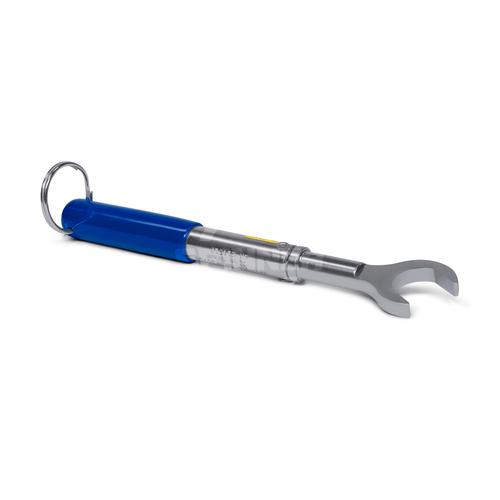


There are decent torque wrenches at various price points ($40–$140) with socket-drive sizes of ¼, ⅜, ½, ¾, and 1 inch. Most vehicles sold in the United States have torque specs expressed in lb-ft. If you're buying a new wrench, make sure it's calibrated with the same units used in your repair procedures or have a conversion table handy. Torque force can be measured in units of meter-kilograms (mkg), newton-meters (Nm), and pound-feet (lb-ft). Torque specs are so critical to proper car repair that most shop manuals provide them along with repair steps and then also include them in back-page tables with fastener location, designation, and individual specs. Too-tight exhaust manifold bolts can cause the manifold to crack. Overtightening cylinder-head bolts, for instance, can easily cause expensive damage and catastrophic coolant loss.

If you plan to do any major work on your engine or on some major powertrain components, you absolutely need a torque wrench. That's why most owner's manuals have a torque specification for lug nuts. Not tightening those lug nuts enough, on the other hand, could actually cause your lugs to loosen, fall off, and cause a wheel to fall off. You could even cause a wheel stud (the threaded part) to snap off. Overtightened lug nuts on a wheel, for example, can lead to brake-rotor warping, less effective stopping, premature brake wear, and the significant inconvenience of stuck lugs. Too tight and the fastener or the fastened part might be damaged or distorted. Why is it important to know precisely how much force or torque is being applied? Too loose and the fastener might back off, causing an obvious issue. When it comes to certain nuts and bolts on cars, guessing it's "tight enough" is almost never right. It's important, but not well-known, that many fasteners require a very specific tightening specification. The difference between a basic wrench and a torque wrench is that the latter indicates-with either an electronic window, a clicking noise, a needle, or a gauge-exactly how much force is being applied to its handle. The simplest way to answer that is to point out that there are numerous good ones (see the list at the end of this article for a few suggestions), so it's important that you know what a torque wrench does and what you need to know to find the best torque wrench for you. What's the best torque wrench? That's not easy to say. But how tight is tight? Certain types of fasteners-many of which are used on a variety of mechanical devices, including automobiles-require tightening to a specific amount so that the component operates properly. And when you use a wrench on a threaded fastener (such as a bolt, nut, screw, or stud), you're applying torque to either tighten it or loosen it. The muscle you apply to the top of a screw-top jelly jar is torque.


 0 kommentar(er)
0 kommentar(er)
